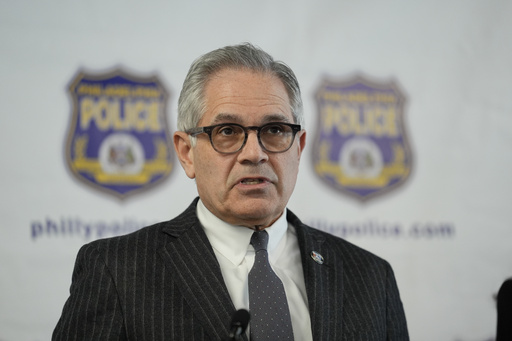PHILADELPHIA (AP) — A Philadelphia man won’t be retried in a 2011 shooting that injured four people, including a 6-year-old girl, and sent him to prison for more than a decade at age 17, a prosecutor announced Monday.
A judge closed the case against C.J. Rice, now 30, months after a federal judge found the defense lawyer at his 2013 trial deficient and the evidence “slender.” Rice had been serving a 30- to 60-year prison term until he was released amid the federal court ruling late last year.
The case was formally dismissed Monday after District Attorney Larry Krasner decided not to retry it. While he said most of the 45 exonerations his office has championed have been more clearcut cases of innocence, he found a new look at the evidence in Rice’s case more nuanced.
“The case falls within that 15% or so (of exoneration cases) where we believe it’s murky,” Krasner said at a press conference where he was joined by defense lawyers who pushed back on that view.
The reversal hinged on a few key points. A surgeon testified that Rice could not have been the person seen running from the scene because Rice had been seriously injured in a shooting three weeks earlier that fractured his pelvis.
Rice was shot on Sept. 3, 2011, in what he described as a case of mistaken identity. His trial lawyer, now deceased, agreed to stipulate that one of the Sept. 25, 2011, shooting victims was a potential suspect in Rice’s shooting — giving prosecutors a motive — even though there was little evidence of that.
“The evidence of (his) guilt was slender. Only one of the four victims was able to identify him and she admitted that the last time she had seen (him) was at least four years before the shooting. No weapon was ever recovered,” U.S. Magistrate Judge Carol Sandra Moore Wells wrote in her October report.
Rice left prison in December, but did not attend Monday’s court hearing. His lawyers said during a news conference that the case echoes many wrongful convictions that involve faulty eyewitness identification, ineffective counsel and overreach by prosecutors.
Nilam Sanghvi, legal director of the Pennsylvania Innocence Project, said the crime should have been thoroughly investigated before trial, not years later.
“It takes courage to face the wrongs of the past,” she said, while adding “we can never really right them because we can’t restore the years lost to wrongful conviction — here, over a decade of C.J.’s life.”
